Providing Comprehensive Services to Families
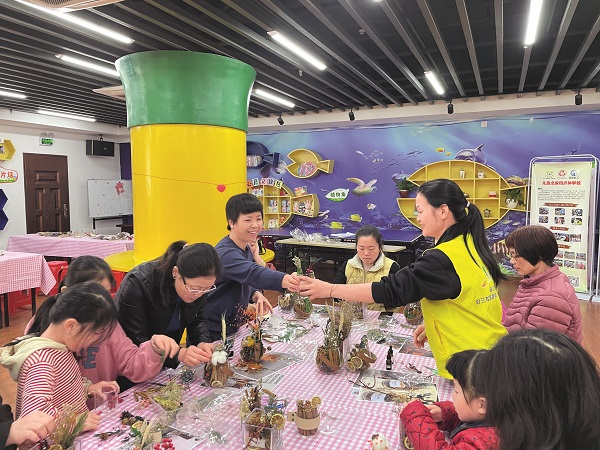
To apply the concepts and approaches of social work in its programs involving families, Jinjiang Women's Federation, in 2015, initiated the Bailanhua Family Service Station Social Work Project in Jinjiang, a city in Southeast China's Fujian Province. The project offers comprehensive services to families, and it is a relatively and highly effective carrier of innovative community governance.
Innovating Family Work
As of October 2021, the Bailanhua Family Service Station Social Work Project has held 1,036 activities, and it has offered services to more than 150,000 people.
Why did Jinjiang Women's Federation initiate the project? In 2014, Fujian Women's Federation urged women's federations across the province to improve their work involving families. "We conducted investigations to find ways to innovate our work. The Four O'clock Schools Project impressed us," Qiu Yujing, one of the founders of the Bailanhua Family Service Station Social Work Project, and director of the general office of Jinjiang Women's Federation, tells Women of China.
The Four O'clock Schools Project was initiated in 2013 in Jinjiang. Its purpose is to help parents, especially those who are migrant workers, care for their children after school. Organizers arrange for the children to read or participate in extracurricular activities, and the services are paid for through government funding. As of 2014, there were 15 such schools serving more than 2,000 students.
"We decided to learn from the successful experiences of the Four O'clock Schools Project. We can initiate a project that offers comprehensive family services," says Qiu.
Supported by the municipal Party (Communist Party of China) committee and the municipal government, Jinjiang Women's Federation commissioned Jinjiang Qihang Social Work Service Center to operate the Bailanhua Family Service Station Social Work Project. In June 2015, the first family service station was established.
Satisfying Residents' Needs
Xu Qingxin, President of Jinjiang Women's Federation, tells Women of China that Bailanhua Family Service Station Social Work Project has always applied a demand-oriented approach, and that approach has become a feature of public services for women, children and families in Jinjiang.
Before the first family service stations opened, Jinjiang Women's Federation conducted surveys to learn about and understand the needs of residents in various communities in Jinjiang. The federation selected three types of communities — commercial communities, where residents are mainly migrants to Jinjiang, communities with residents from different backgrounds, and communities for relocated rural residents — as trial project areas. The family service stations are open six days a week.
Huang Fang, head of Jinjiang Qihang Social Work Service Center, tells Women of China the center made service plans when it began implementing the project. To learn the needs of families, the center's social workers conducted surveys — through questionnaires and interviews — in various communities.
Wu Fang'e, a resident of Wangcuo Community, in Jinjiang, says her son attends the Four O'clock School, and some of the teachers help him with his studies after school.
Since the family service station was established, Wu and her son have been able to attend activities there together. The services for children offered by the Four O'clock School are still available at the station, and more activities are organized for all residents. Wu can learn to make pastries and handicrafts from her neighbors at the station.
Huang classifies the project's services into four categories: Promoting women's development, protecting women's rights and interests, caring for children, and promoting harmony within the family.
The project offers training to help unemployed women learn domestic-service skills. It conducts various activities to promote the protection of women's rights and interests, and it works with volunteers' groups to organize jumble sales of materials donated by residents. The income of the sales has been used to help children in need.
Contributing to Social Governance
In addition to providing services to families, Bailanhua Family Service Station Social Work Project has been playing a role in primary-level social governance.
Huang says social organizations are an important force in innovative social governance at the primary level. Some organizations can integrate social resources and unite other social organizations. Such organizations play an important role in providing social services and helping defuse social problems.
In September 2021, numerous cases of COVID-19 were reported in Xiamen and Putian, both cities in Fujian. To prevent the spread of the epidemic, Jinjiang Women's Federation quickly urged Jinjiang Qihang Social Work Service Center to adjust the regular services of the project. Eighty-five of the project's social workers and volunteers participated in epidemic prevention and control efforts in the communities. They helped community workers register information of returnees from medium- or high-risk areas, and they provided psychological guidance to residents through a hotline.
The Bailanhua Family Service Station Social Work Project promoted the establishment of a service mechanism involving social workers, women's federation workers and volunteers in Jinjiang. The mechanism helps coordinate the work of social workers, social organizations and communities, and it integrates social resources, in Jinjiang's efforts to satisfy the needs of women, children and their families.
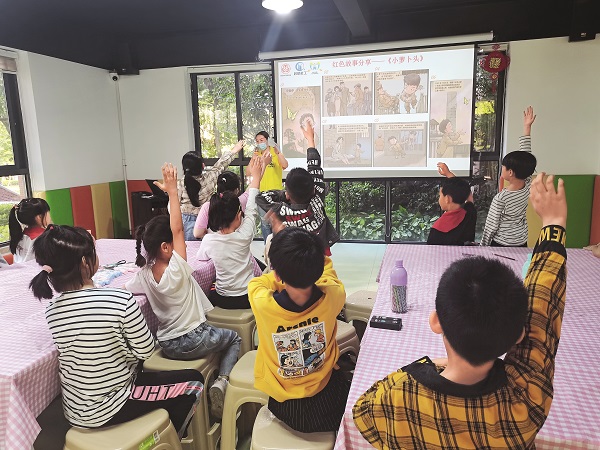
Photos Supplied by Interviewee
(Women of China English Monthly May 2022 issue)
Please understand that womenofchina.cn,a non-profit, information-communication website, cannot reach every writer before using articles and images. For copyright issues, please contact us by emailing: website@womenofchina.cn. The articles published and opinions expressed on this website represent the opinions of writers and are not necessarily shared by womenofchina.cn.

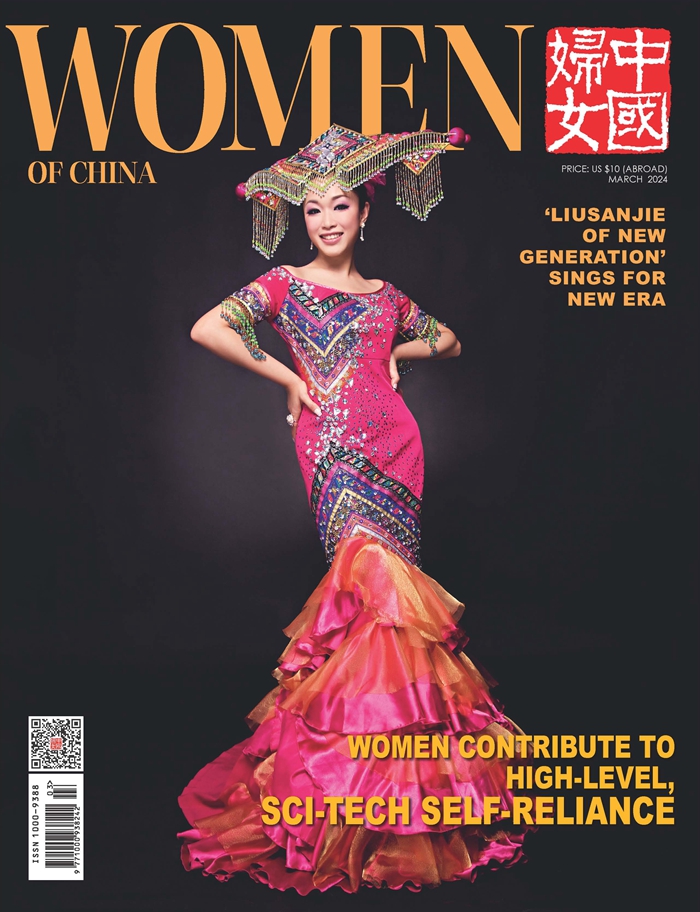
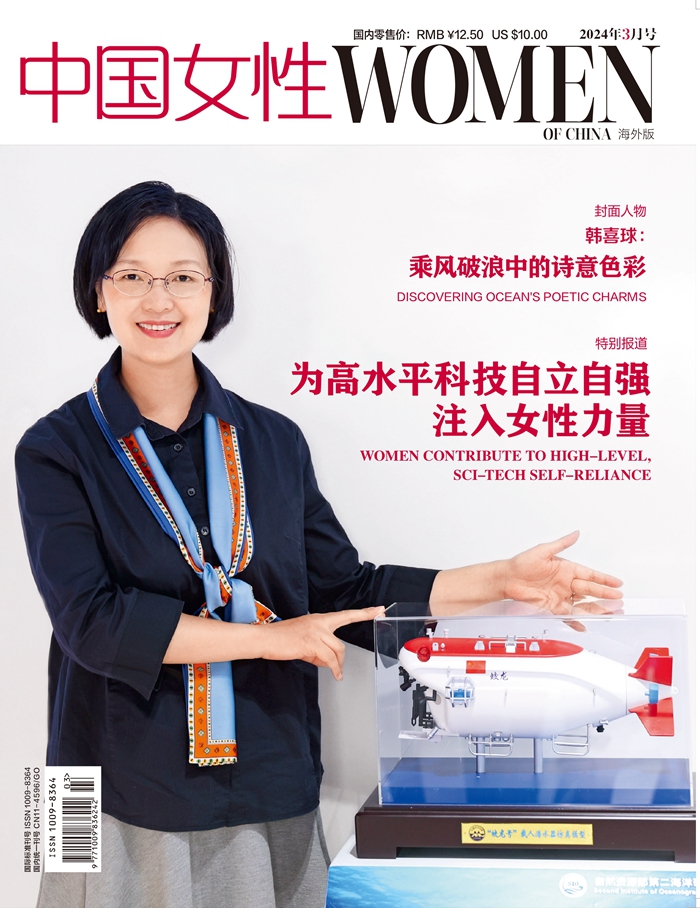
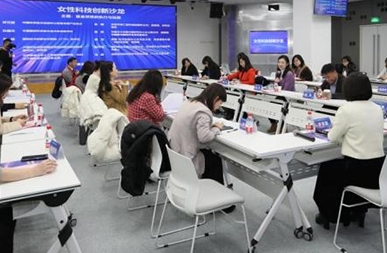




 WeChat
WeChat Weibo
Weibo 京公网安备 11010102004314号
京公网安备 11010102004314号